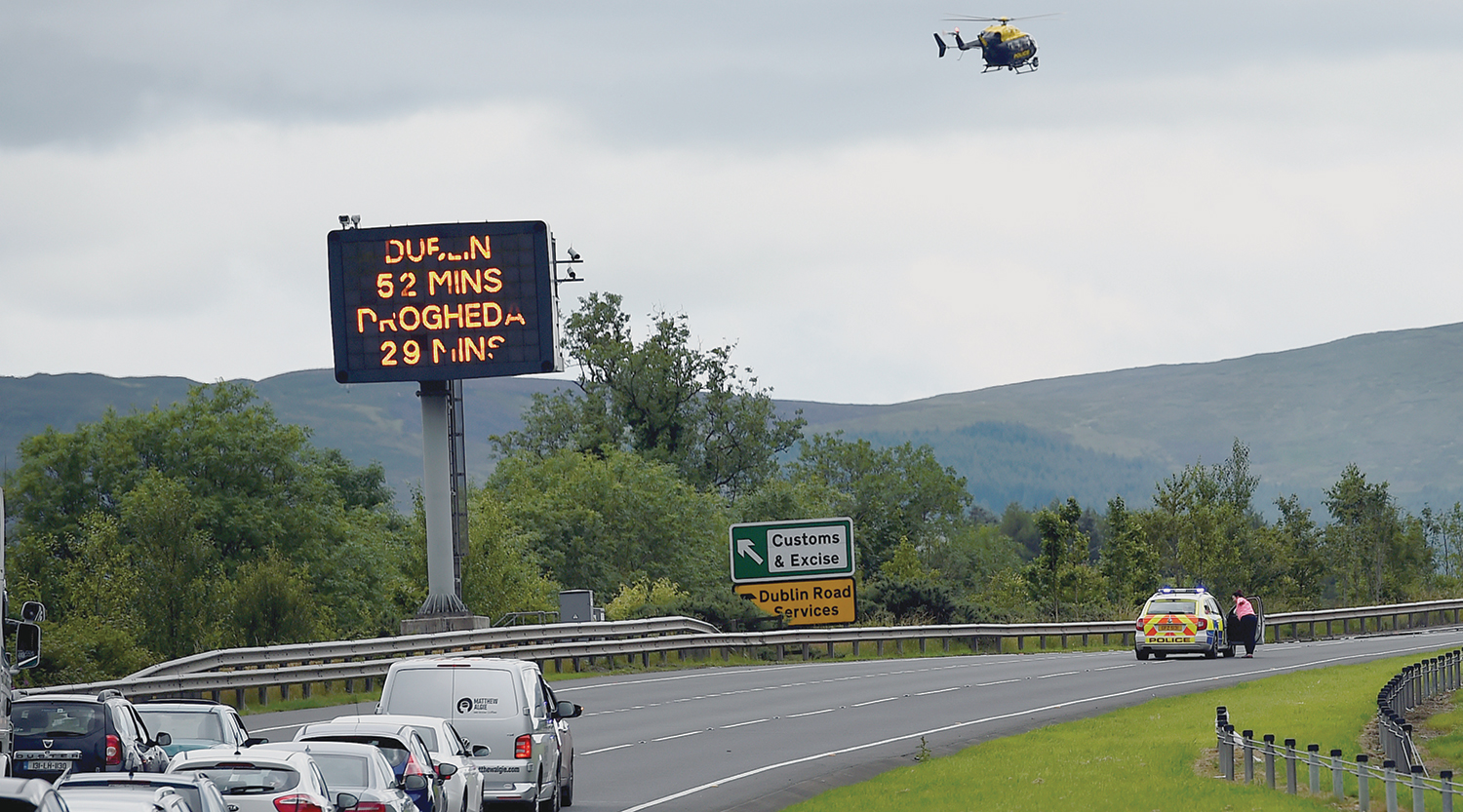

DUBLIN: There is no proposal to move the border between Ireland and Britain to the Irish Sea, Ireland’s foreign minister said on Friday, after reports of such a post-Brexit solution stoked fury among pro-British Northern Ireland politicians.
Northern Ireland’s Democratic Unionist Party (DUP) — the Protestant party propping up British Prime Minister Theresa May’s minority government — called the idea “absurd” and “unconstitutional”. One senior member of the group suggested it now meant “a very hard border” returning to Ireland.
The current border between the Irish Republic, a member of the European Union, and the British province of Northern Ireland would become the only land frontier between the UK and the EU once Britain left the bloc in early 2019.
Moving it to the sea would effectively draw a new border — possibly between Britain and its province.
Irish Foreign Minister Simon Coveney said no such proposal existed.
But he said it was up to London to figure out how to avoid a “hard border”, the latest sign of growing impatience in Dublin with May’s government.
“There is no proposal that is suggesting that there be a border in the Irish Sea.
What we are saying is that there is an onus on the UK to come up with imaginative and if necessary unique solutions,” Coveney told national broadcaster RTE.
The issue is particularly sensitive given the decades of violence in Northern Ireland, which ended in a peace agreement less than 20 years ago.
Politicians in London, Dublin, Belfast and Brussels have all said they want to avoid the return of a “hard border” on the divided island, although no progress has yet been made.
It is one of the key decisions to be made before a Brexit agreement can be reached.
In the latest wrinkle, The Times newspaper reported that the Irish government’s preferred option is for customs and immigration checks to be located away from the land border and at ports and airports.
In effect, that would draw a new border in the Irish Sea.
Ian Paisley Jr, one of the 10 DUP members of the British parliament allowing May’s government to stay in power, went on Twitter to condemn the idea.
“1 of 2 things will now happen 1. A very hard border 2. Ireland will wise up and leave the EU,” he said.
May has said she wants the post-Brexit border to be as seamless as possible.
Dublin, meanwhile, fears anything resembling the land border posts of the past could pose a risk to peace.
About 30,000 people cross the current, invisible frontier each day for work and many farms straddle the 500 kilometre border.
Any hindrance to cross-border trade would hit Northern Ireland harder.
The Republic accounts for 25 per cent of Northern Irish exports outside the UK, compared with just 1.4 per cent going the other direction.
Officials from the Irish government agency responsible for customs checks said in May that checks 10 to 15 km from the frontier were being considered.
Then finance minister Michael Noonan raised the possibility of control points at airports and ports over a year ago.
Such a scenario would be unacceptable to the eurosceptic DUP, the only major Northern Irish party to campaign for Brexit. It wants to strengthen the union with Britain in the face of calls by Northern Irish nationalists to unite both sides of the Irish border.
“There is no way that the DUP would go for an option that creates a border between one part of the United Kingdom and the other.
Dublin really needs to understand that the proposition is absurd, it’s unconstitutional,” DUP MP Jeffrey Donaldson told BBC Radio.
Overall, 52 per cent of voters in the United Kingdom voted in favour of leaving the EU in last year’s referendum, but 56 per cent of those voting in Northern Ireland supported remaining in the bloc.
Coveney reiterated that Britain could not pretend that they can solve the border problem through technical solutions such as putting cameras on the 400 road crossings along the frontier.
“Ireland has real issues here, real vulnerabilities. We cannot support any proposals from the British or European side for the re-emergence of a border,” he said. — Reuters
Oman Observer is now on the WhatsApp channel. Click here



